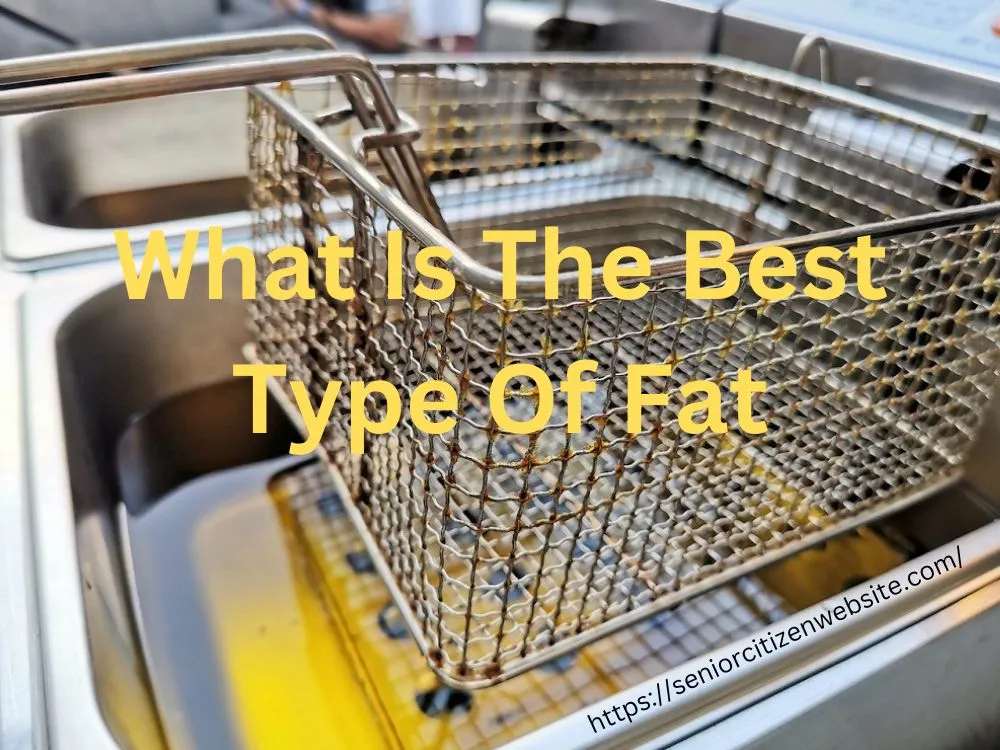What Type Of Fat Is The Best For Your Health
The discussions of what fat is the best for you and why have been going on for a long time and there are as many opinions as there are types of fat it seems.
There are however more respectable sources that are coming back from the opinion that saturated fats are not good for us.
They claim that it was forced upon us through a very clever advertisement campaign a long time ago to use transfat vegetable oils instead of natural fats like lard.
Here Are A Few facts And Findings About Fat
What is fat
Wikipedia writes:
“Fat is one of the three main macro-nutrients, along with carbohydrates and protein. Fats, also known as triglycerides, are esters of three fatty acid chains and the alcohol glycerol.”
There Are 3 Kinds Of fat
There are more but these are the main ones.
1 – Saturated fat
Butter, cheese, ice cream, milk, palm oil, coconut oil, and lard.
Solid at room temperature that is why sometimes it’s called solid fats
2 – Unsaturated fat
Mostly from plant sources. Olives, nuts, or seeds. But also in fish.
Unsaturated fat can be divided in:
- Omega-3 polyunsaturated fat
- Omega-6 polyunsaturated fat
3 – Trans fat
Trans fat is saturated fat but man-made!!
Naturally found in small amounts in meat and milk products.
Transfats are vegetable oils that have undergone a hydrogenated process and are present in many products.
Partial hydrogenation is an industrial process used to make a perfectly good oil, such as soybean oil, into a perfectly bad oil.
Transfats are created by pumping hydrogen into unsaturated fats such as soybean oil.
“Transfat is a man-made fat!!! It does not exist in natur”
This makes transfat the most unhealthy to use in any form or shape.

Let’s try to find out a little more about transfats
Maybe there are a few things we knew that are now proven to be wrong.
Labeling on products that contain transfats can be fraudulent
Transfat is found in very small amounts in some foods and our body can probably handle that since it comes from nature.
Here are facts that show that we use this unhealthy fat without knowing it.
The FDA regulations state that if the content of trans fat is less than 0.5 grams of the serving it can be called containing zero trans fat. “Og of transfat” on the label does not mean what it says.
You can look a little more at the label and when you find words like partially hydrogenated vegetable oil, hydrogenated vegetable oil, or food containing trans-fat you know that there is transfat in there.
Let’s have a little closer look at this. For example, if a cookie contains 0.3 grams of trans fat, that is a pretty standard amount, and you eat 3 cookies. (I can do that easily) Then you have consumed a lot more transfat than the zero transfats you thought the label told you.
That also leads us back to the question:
What Type Of Fat Is The Healthiest For Us?
“My Thoughts! I believe that we need all fats to stay healthy with the exception of trans fat since that is not natural but chemically manufactured.”
Omega-3 polyunsaturated should be the obvious winner
The most beneficial is probably Omega-3 polyunsaturated fats. This fat is found in fish, nuts, and seeds. But only used in their natural form and not altered by any process is good for us.
It is however not advised to use only Omega-3 polyunsaturated fats since this would not follow the natural rule that we need all types of fat in a healthy diet.
What About Saturated Fat?
As I wrote before the opinions about saturated fat are changing. We all have been told that saturated fat is bad for us and raises heart problems and cholesterol.
The strange thing is however that in countries where people use a lot of saturated fat the rates of heart problems and cholesterol are a lot lower than here in the US.
It is also a fact that heart problems and cholesterol here did continue to rise after we started using more unnatural transfats like Crisco and vegetable oil instead of lard.
Two Saturated Fats That Are Healthy – Coconut Oil And Lard
Coconut oil contains 90% saturated fat and compared to butter with 64%, beef fat with 40%, and lard with 40% it should be very unhealthy if we look at the high saturated fat content.
Coconut oil is without a doubt a saturated fat that is good for us. Proven by the fact above since it is used in many of these countries where heart problems and cholesterol are lower than here in the US.
It contains Lauric acid and this is linked to lowering the risk of heart disease and lowering cholesterol.
Lard is a fat that has been used for many years before the vegetable oil revolution. This was caused by Proctor and Gamble to find a market for their unusable cottonseed oil that was used to make soap and candles.
With the ongoing electrifying in the US, they had to find a way to sell their oil and they invented Crisco which is also a, for the most part, transfat.
Lard is made of pork fat that is melted and when cooled will last for a long time.
Animal fats have been called bad because of the high content of saturated fats but as we showed in the coconut part of this article, saturated fats are not unhealthy. Lard contains less saturated fat than coconut oil and most people nowadays still believe that lard is not as healthy as coconut oil.
Our ancestors used lard almost daily without health problems that started to show up after they made us switch to “healthy” vegetable oil invented by companies to make a profit.
Saturated fat facts
- Vegetable oil usage was not recorded since about 1965. Why? That was when the whole eat healthy myth started.
- Vegetable oil consumption went from 10 lb. up to over 40 lb. in 50 years. (1965 – 2015)
- Lard consumption went down from 15 lb. to almost 0 in the same period.
“My Thoughts! Do you really believe that consuming 40 LB transfat vegetable oil is healthier than 15 LB lard?”
- Shortly after that, around 1970, the obesity rates started to climb rapidly. Did that have to do with the Low-fat diet guidelines?
- Studies have not been able to show that a low-fat diet reduces heart disease. Some studies show however that using vegetable oil instead of saturated fat increases the risk of heart disease.
- The most harmful fats are fake transfat and vegetable oils that are high in Omega-6 fatty acids.
- A 6-year study showed that monkeys that ate high transfat diets had 33% more gain in belly fat than the other group that ate a high mono-saturated diet
My Take On The Whole Fat Issue And What I Use
I strongly believe that the war against saturated fats like lard and real butter was started out of greed by a company that tried to create a market for its products.
The mainstream medical field was told that eating healthier meant less saturated fat.
But as always it shows that if something is wrong it sooner or late will come out.
Fats I Use in my Life
- Lard for frying. Nothing tastes better than fried chicken in lard
- Coconut oil for cooking meat and vegetables
- Olive oil for food that does not need to be cooked at a high temperature
We can use all types of supplements for seniors but it is better to try to take the unhealthy things out of our lives first.
Disclaimer.
To be clear. This post is my opinion after reading a lot of articles and scientific reports (That I have not always understood) and trying to find the answers to the question that I had for a long time about what kind of fat we need and what kind of fat we really eat every day.
Eddie Vandam
About the Author: Eddie Vandam
Eddie Vandam is a proud senior and retired internet marketer who now dedicates his time to helping others age well. As the voice behind the Senior Citizen Website, he shares practical advice on staying healthy, independent, and informed. From product reviews to wellness tips and hobbies that keep life interesting, Eddie writes with real-world experience and a passion for making senior life easier and more enjoyable.👉 Read more about Eddie Vandam.
Resources
https://en.wikipedia.org/wiki/Fat
http://www.health.harvard.edu/staying-healthy/coconut-oil
http://www.webmd.com/food-recipes/features/good-fats-bad-fats#1
http://www.theatlantic.com/health/archive/2012/04/how-vegetable-oils-replaced-animal-fats-in-the-american-diet/256155/
http://www.huffingtonpost.com/2014/04/28/cooking-with-lard-baking_n_5212804.html
http://www.npr.org/sections/money/2012/02/03/146356117/who-killed-lard
http://www.webmd.com/cholesterol-management/features/truth-about-saturated-fats
http://www.health.harvard.edu/staying-healthy/the-truth-about-fats-bad-and-good
http://ajcn.nutrition.org/content/71/6/1455.full







